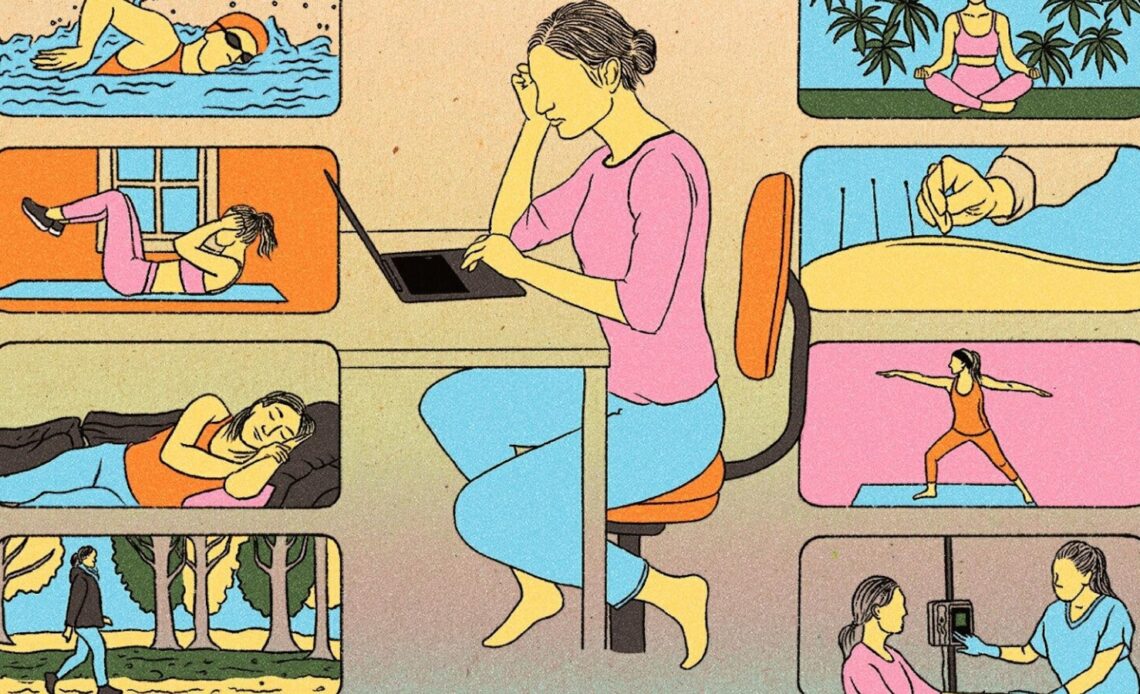NEW YORK — The moment I knew I had to get serious about work-life balance came without warning. I was writing a high-profile news story during the pandemic when my heart began pounding like a jackhammer.
I took a quick, deep breath and held it, hoping to calm the arrhythmia. It was a technique I’d learned to relieve occasional palpitations caused by my rare congenital heart defect. But this time was different. The room went dark. I couldn’t see. Then, just as quickly, my vision returned.
In the days that followed, I learned I needed to have a defibrillator surgically implanted as soon as possible. My cardiologist told me: it’s time to reduce stress. That was a prescription I, like many Americans, didn’t know how to fill, especially as the parent of a young child.
But the health scare and a cancer diagnosis that followed meant I had to try. Now, as I continue this journey, I’m launching a series called “Working Well.” While exploring ways to improve my own well-being at work, I’ll share experts’ insights and tips with readers who hope to do the same.
We’ve been through a lot the past few years: A global pandemic took loved ones’ lives and left parents juggling full-time jobs with no childcare. College graduates navigated their first professional jobs without lunch buddies or in-person mentors. Elections and wars divided families and places of work. It’s no surprise workers feel burned-out.
But along with these challenges came a growing sense that we could choose to build our professional lives in a different, healthier way. Companies experimented with hybrid work models. Younger generations talked more proactively about mental health. Employers looking to retain workers launched in-house yoga and stress-reduction programs.
The Associated Press wants to contribute to the conversation about workplace wellness. In the coming months, we plan to interview doctors, therapists, executives and coaches about the changes they recommend or have made to improve employees’ lives — ones you may want to consider, too.
The topic is personal for me. After I received my defibrillator, I took steps to find that elusive work-life balance. I experimented with a four-day workweek. That helped me find time to exercise, cook healthy meals and occasionally pause.
Just as I was getting into a groove, a routine mammogram revealed breast cancer. There would be surgery. I was given frightening handouts and bluntly told about procedures that would make me feel like…
Click Here to Read the Full Original Article at ABC News: Health…

